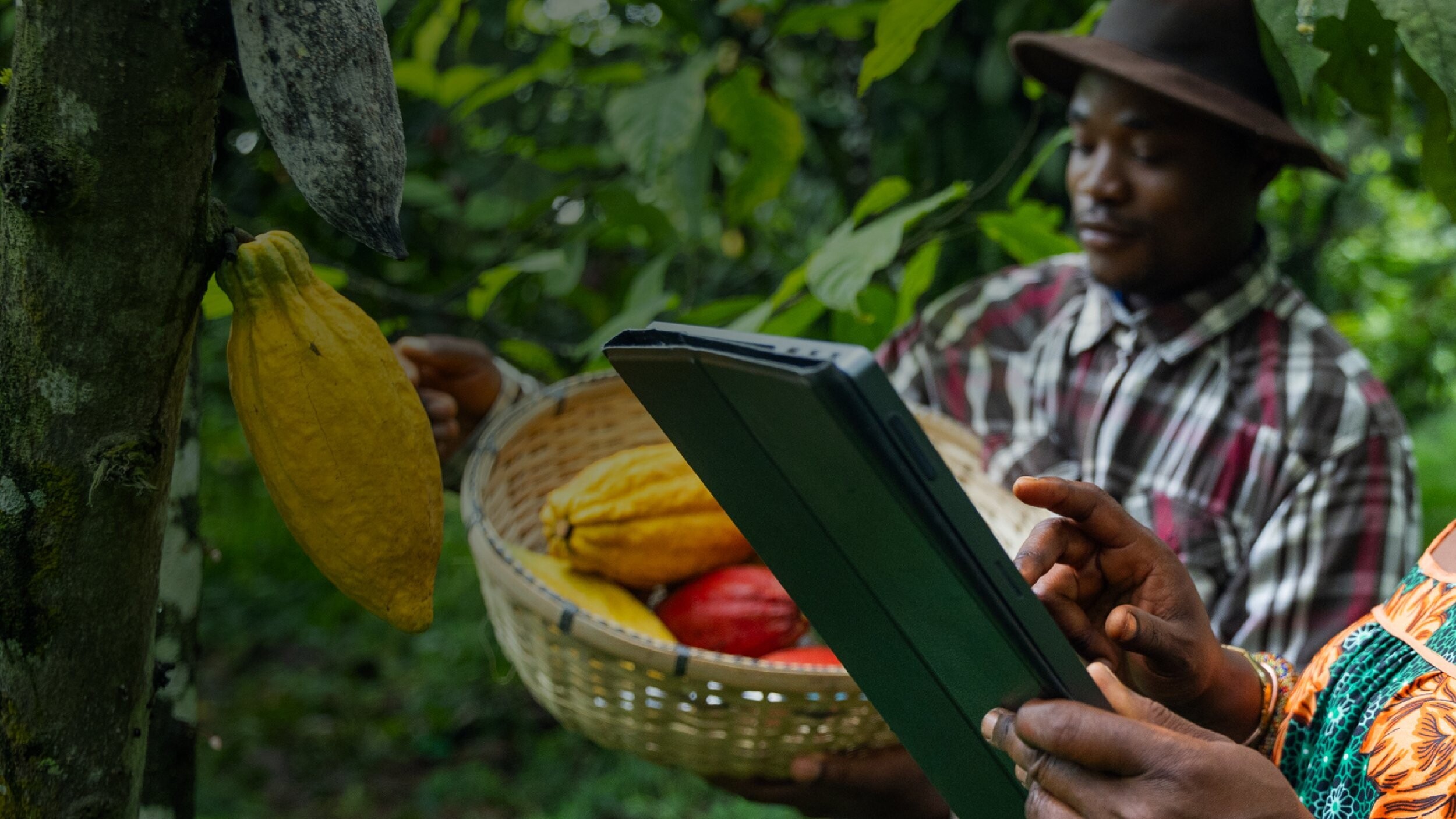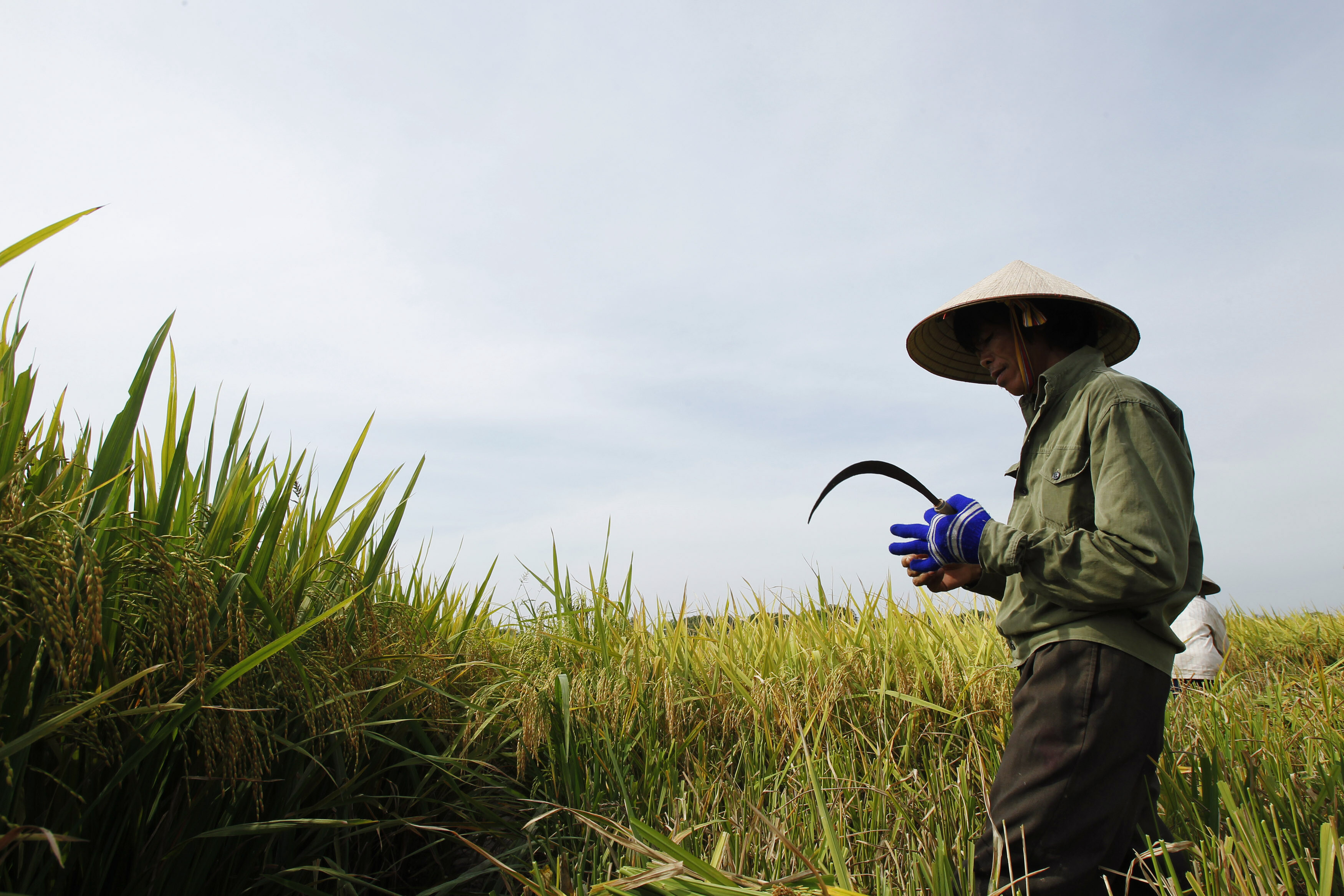Social procurement in Asia is an underutilized tool for good

Governments in Asia could reap many benefits from embracing social delivery organizations in their procurement. Image: REUTERS/Kham
- Asian governments are grappling with the dual challenges of fostering growth and economic opportunity alongside providing adequate welfare.
- Government procurement has been too long overlooked as a way to tackle both these goals simultaneously.
- Across Asia, governments have an opportunity to elevate the role of social enterprises and nonprofits while creating more vibrant economies.
Most Asian economies face two key challenges: expanding welfare services amidst tightening budgetary conditions and stimulating economic growth that generates youth employment. These twin challenges require innovative solutions and have elevated the importance of social delivery organizations (SDOs — nonprofits and social enterprises) across the continent.
Government procurement from the social sector is one solution that can create win-win solutions for all involved in trying to stimulate growth and provide social services.
Research by the Centre for Asian Philanthropy and Society (CAPS) into the state of play in social procurement across 17 Asian economies has uncovered the key policy measures delivering success.
The state of social procurement in Asia
Government procurement from the social sector, or social procurement, can take a range of forms. The government could hire the SDO as a knowledge partner (e.g., consulting on the delivery of a service), a service provider (e.g., delivering elderly care services to a community) or a product supplier (e.g., making handicrafts for diplomatic gifts).
By procuring from SDOs, governments can leverage the subject expertise and community networks these organizations have built over the years, saving resources that would otherwise be used to replicate knowledge and networks. Furthermore, social procurement allows governments to use market mechanisms to deliver public services while supporting the social sector, which is especially valuable to governments with fiscal constraints that are unable to afford separate grants or subsidies. Social enterprises and nonprofits are also significant job creators, especially for key demographic groups such as youth, women and people with disabilities.
Taking part in government procurement provides SDOs with a valuable source of income. This is important because during the past decade or so, the Asian social sector has experienced a fall in foreign funding and is increasingly seeking domestic alternatives. Moreover, receiving government procurement contracts provides reputational benefits and earns credibility from the public, other SDOs, as well as individual and corporate donors.
Social procurement remains underutilized in Asia. Only 32% of the 2,183 SDOs surveyed by CAPS for its Doing Good Index 2024 participated in government procurement. SDOs in China (73%), Korea (58%) and Japan (49%) accounted for the highest proportion of participation, while the Philippines (8%), Sri Lanka (12%) and Cambodia (13%) had the lowest rates of participation. Notably, as a proportion of identifiable income sources, procurement funding accounted for only 9% of an average SDO’s income. In fact, in a majority of economies, procurement contributed less than 2% of their income.
Why social procurement is underutilized
The underutilization of social procurement in Asia is due to a combination of factors, including the absence of adequate policy support and more structural challenges related to capacity limitations faced by SDOs.
These capacity constraints are multifaceted. SDOs often lack the operational capacity to fulfil large government procurement contracts. Moreover, unfavourable payment structures in procurement exacerbate the limited cash flow experienced by many SDOs, creating hurdles in contract delivery. Compared to private companies, SDOs face tighter liquidity as they rely on donations and grants and have fewer assets and sources of income generation. Thus, they are less likely to have access to financing tools such as bank loans. As a result, SDOs are more restricted if they need to divert capital upfront toward a project incurring heavy costs at the onset.
Smaller and newer SDOs, in particular, lack the specialized personnel required to monitor procurement opportunities and conduct cost assessments for participation. In fact, 67% of SDOs surveyed in the Doing Good Index 2024 consider it difficult or very difficult to acquire information and apply for government procurement opportunities, while over half (57%) find the approval process not transparent or only somewhat transparent.
Capacity constraints undermine the promotion of social procurement even when the legal frameworks are changed to support it, as evidenced in Malaysia. In 2021, the Malaysian government allocated approximately $4.6 million for a social procurement pilot initiative, Program Perolehan Impak Sosial Kerajaan (PPISK). However, when the pilot phase concluded in 2023, the cumulative procurement amount fell short of expectations at just over $77,000. The underwhelming outcome prompted the government to discontinue the program. Production capacity constraints of social enterprises were identified as a major factor hindering the successful implementation of PPISK.
Policy support for social procurement
Given these capacity constraints, it’s essential that a favourable policy framework that addresses the scope of challenges is created to support more social sector participation in government procurement.
While all 17 economies included in the Doing Good Index 2024 allow SDOs to bid for government procurement contracts, only two provide a broader package of tailored incentives to promote social procurement. These two have carved out preferential procurement opportunities for the social sector and invested in online procurement platforms and information distribution systems that significantly reduce the administrative burden while simultaneously improving information access. These tailored incentive to procure from SDOs are accompanied by capacity-building initiatives, and a policy focus that encourages the wider private sector to partner with SDOs to develop supply chains and internal capacities as well.
The way forward for Asia
Looking ahead, it is important that Asian governments recognize the importance of social procurement and adapt accordingly, as it is a cost-effective and socially beneficial means of dealing with several development challenges at once. To do so, creating a conducive procurement policy and processes is essential. However, policy reforms alone are inadequate, and governments should partner with the private sector and SDOs to create an enabling ecosystem. This could be achieved by helping SDOs partner with private sector stakeholders and other social sector actors to develop more robust supply chains and improve their technical know-how. Meanwhile, SDOs can shift their attention towards sub-contracting opportunities and local government procurement, which tend to be of a smaller scale and more manageable. Each of these measures has the potential to elevate the role of social enterprises and nonprofits in simultaneously creating a more vibrant economy and society.
Don't miss any update on this topic
Create a free account and access your personalized content collection with our latest publications and analyses.
License and Republishing
World Economic Forum articles may be republished in accordance with the Creative Commons Attribution-NonCommercial-NoDerivatives 4.0 International Public License, and in accordance with our Terms of Use.
The views expressed in this article are those of the author alone and not the World Economic Forum.
Forum Stories newsletter
Bringing you weekly curated insights and analysis on the global issues that matter.






